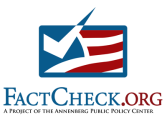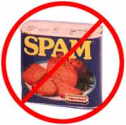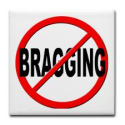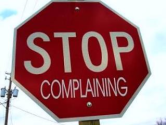-
About
- About Listly
- Community & Support
- Howto
- Chrome Extension
- Bookmarklet
- WordPress Plugin
- Listly Premium
- Privacy
- Terms
- DMCA Copyright
- © 2010-2025 Boomy Labs
Listly by Vernon Niven
10 introductions that work, plus 5 that don't
Source: http://www.needtagger.com/10-ways-to-introduce-yourself-to-a-prospect-on-twitter/

It can be awkward to introduce yourself and your company to a prospective customer who does not know you or follow you. But that doesn't mean you shouldn't do it. After all, millions of people express commercial intent every day on Twitter.

People love to be asked for their opinion and input, especially if the request comes from an expert in a topic that they discuss regularly. Examples of questions that solicit an honest conversation include: “Which one would you chooose – A or B?”, “Where could I learn more?”, “What do you think about X?” or “Where did you find that?”.

If you or your company possess online content that might help this person, then by all means share it. This is one of the best uses of Twitter. If your assistance is in the form of a white paper, video or presentation, you can capture a warm lead (email address, name, company, etc.) by forwarding them to a sign-and-download landing page. If you require them to fill out a signup form to get their answer, then tell them upfront (“short signup req’d”).

If you don’t have a link to share, but you can offer a quick answer or piece of advice that can help someone out, then send it on. You might be surprised at how grateful people can be on Twitter!

Following someone is the simplest, lowest-risk way to connect with a prospect on Twitter. It’s the online equivalent of sharing your business card with someone.

This is another low-risk way to actively engage with a person on Twitter. At the very least, re-tweeting expresses you share a common interest. Most of the time she will notice your interest, and sometimes she will thank you. There are no technical limits on the number of people you can retweet each day. However, if you have a large number of active and engaged followers, then you should limit your retweeting activity to to 20%-30% of your daily posts, or people may start unfollowing you due to your lack of original content.
If you know someone else on Twitter who might be able to answer a question or deal with an issue, then by all means forward their message on to that person with a quick "(hope this helps)".

Look for statements that you honestly agree with, then give the author a "high five" by declaring your support for their position. People love to hear others say, "Exactly!", "That's what I thought!" and "You nailed it!". But don't fake it, because you might be asked, "Really? exactly what did you like?".

If you see someone post an inaccurate statement or a misconception about your company, don't argue! But feel free to correct the inaccuracy with facts (preferably in the form of a third-party link). Most people respect a company that listens to and respond to people who talk about their brand. But never argue in public, it's always a bad idea.

This is another no-brainer. People love an honest compliment. Just make sure you are talking about something that you actually liked, or your compliment could backfire.

A lot of people don't understand how to use @name addresses correctly on Twitter. Starting your outreach tweet with your prospect's @name tells Twitter that only your prospect and your followers should see your tweet. However, if you address your prospect using@name placed anywhere else in your tweet, then ALL of your prospect's followers will see your targeted message, too. This simple mistake can lead to an embarrassing situation - especially if you are trying to help them resolve a "sensitive" issue.

There are some exceptions to this (like offering a coupon to a hungry restaurant seeker), but for the most part people don't like unsolicited offers interrupting their conversations.

Does this really need explaining? Focus the vast majority of your personal social time on finding problems and on sharing solutions - not on explicit marketing and advertising. That said, it's totally fine (and smart) to post 1 or 2 messages a day from your account informing people of a new product, blog post or even a special deal.

Unlike politics, in business attacking your competition won't get you anywhere - especially in a court of public opinion like Twitter. In fact, you might want to consider complimenting your competitors when they deserve it (just released a new cool feature/product, did something important for a customer, shared a valuable insight, etc.) - this is something we like to do from our @needtagger corporate account. We think it's important that our customers know about the state of the art in social customer prospecting - even if we aren't the ones leading the charge on that particular day.

This really doesn't work, and it leaves a bad impression. If you are going to send someone to content that will help them, then when they land on that link they should see the content (or at least a useful portion of it). If you are going to send them to a form, then tell them this upfront ("short signup req'd"). It's all about being honest and respecting the other person's time.

We all use automation to some degree, but automation doesn't work when you are meeting a person for the first time. If you care about making a good first impression, then tailor your first message for that person, for that time of the day, using extra sensitivity to their unique situation, location and language.